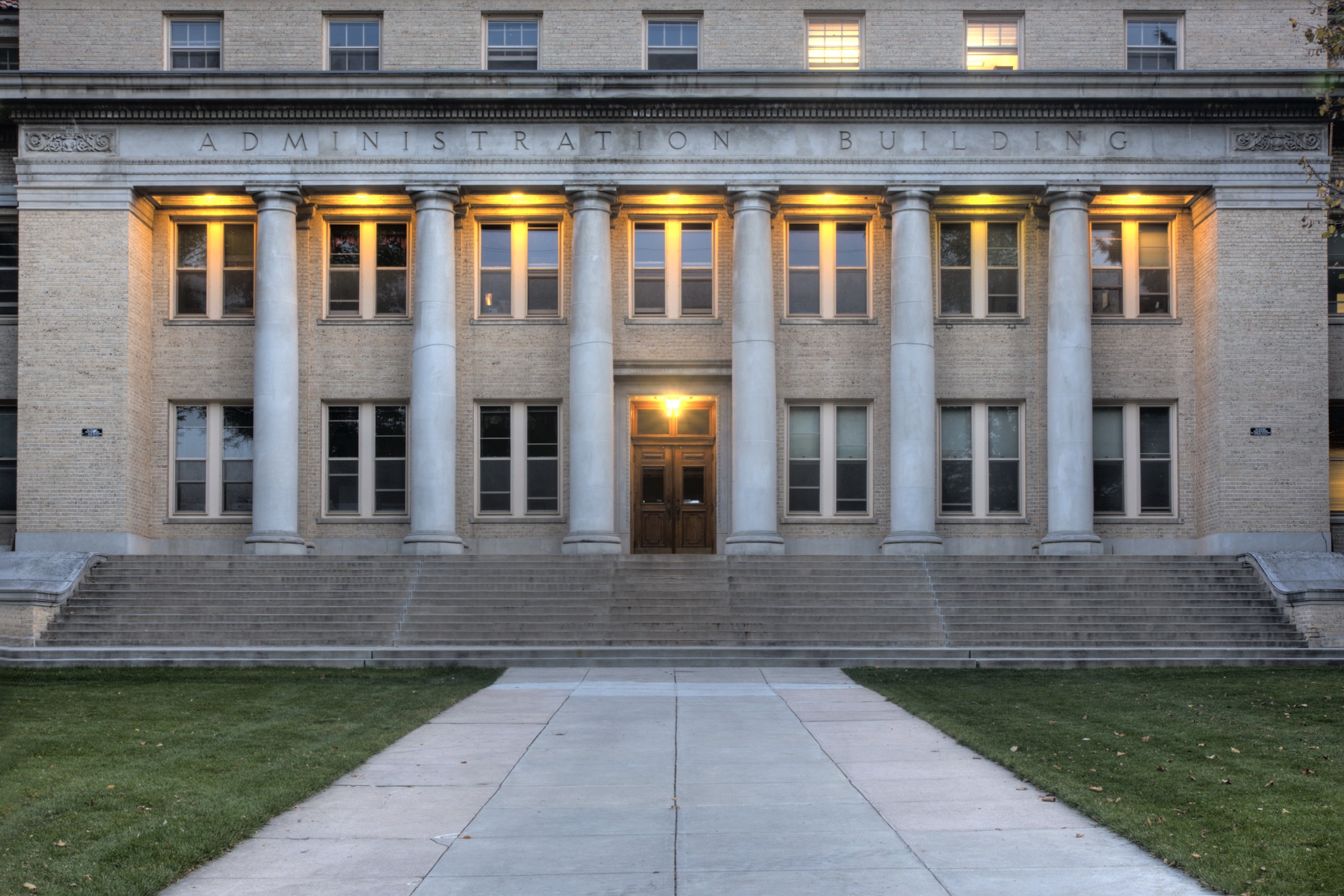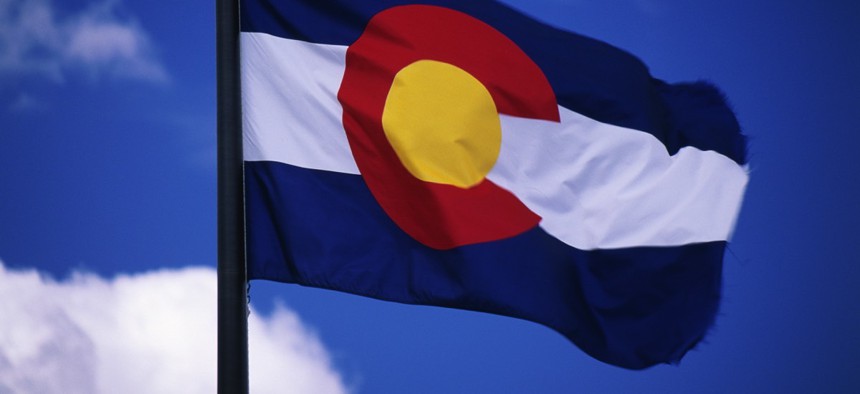Connecting state and local government leaders
Among the problems in the Centennial State: Since there’s no appeals process for denied records requests, the only recourse is litigation.
At this point, the battle over access to public records in Colorado has the feel of bureaucratic trench warfare.
Each side knows well where the other side stands and what weapons it has at its disposal. Treaty negotiations stop and start in rooms far from from the action, including courtrooms. Casualties mount. There is no end in sight.
It comes as no surprise, therefore, that a state-by-state government integrity assessment released Monday by the nonprofit Center for Public Integrity gave Colorado an F grade for public access to information. The state received a D+ rating overall.
Here are a few of the battles making headlines and clogging inboxes in just the past week.
Three school board members in Jefferson County were recalled from office partly based on accusations that they had skirted state open meetings laws.
Colorado State University President Tony Frank has repeatedly denied requests by the Coloradoan newspaper in Fort Collins to make available a digital database of the salaries of the public university’s 5,000 employees. The newspaper is investigating complaints concerning pay inequities tied to gender bias. But university lawyers say the institution is under no obligation to produce the digital version of the database—a thumb drive or a Dropbox version—because the information is available on a single hard copy of some 150 pages kept at a university library.
Carbondale-based election integrity activist Harvie Branscomb is asking county clerks to make available voted ballots in eight counties that in last week’s elections performed test runs of four pilot voting systems, systems which “have never before been used in Colorado and in some cases have never before been used anywhere,” as Branscomb put it in a letter to the Colorado Freedom of Information Coalition and shared with Route Fifty. Branscomb wants to retabulate the results produced by the new systems and check them against the ballots and look for anomalies.
Ballots are public records, at least officially. In some cases, digital scans of the ballots are available, but the cost charged to those seeking access to the ballots or to scans of the ballots varies widely. Douglas County estimates it will have to charge Branscomb $4,000 in staff hours. Jefferson County wants $12,000.
Clerks say staffers will have to inspect each ballot and black out any marks that can be used to identify voters—either barcodes used by clerks, for example, or signatures or initials written onto ballots by voters. Yet, marking ballots with anything that can tie it to any individual voter is against the law.
“It is a violation of the state constitution and a criminal offense to make identifying marks on a ballot,” said Marilyn Marks, head of the watchdog nonprofit Citizen Center and a perennial thorn in the side of Colorado officials. Some call her the “CORA lady,” referring to the steady stream of Colorado Open Records Act requests she files. Others call her the “CORA Nazi.” The longer conversations about Marks extend at the State Capitol in Denver, the more profane grow the nicknames. Marks takes the abuse as a badge of honor and a sign of respect. She knows how the state’s CORA laws work.
“If someone has truly put identifying marks on a ballot, the ballots should be turned over to a district attorney, and not counted,” she told Route Fifty. “Citizens attempting to verify an election should not have to pay to remove the evidence of a crime!”
Branscomb further laments the unnecessary delays in access put in place by the state.
According to a law passed in 2012, citizens can’t access voted ballots until after an election is certified, which activists like Branscomb and Marks point out defeats the purpose of citizen attempts to help root out machinery misfires, staff foul-ups and political shenanigans.
Citizens, journalists and nonprofit watchdogs in Colorado will continue to struggle with matters like these.
The authors of CPI’s report noted that, in Colorado, unlike in some of the other states, there is no formal appeals process to which records requesters who have been denied access to documents can turn. Instead, they have to take their case to court and pay legal fees in addition to the fees they are charged for the public documents they have already paid for with their tax dollars. In most cases, non-millionaires walk away from their requests. Newspapers walk away, too.

Steve Zansberg, president of the Freedom of Information Coalition, wrote in a Coloradoan op-ed last week that while he disagreed strongly with the refusenik position regarding the salary database taken by CSU President Frank, but that he could not in good conscience advise the newspaper to “expend thousands of dollars litigating the issue.”
“[The university] maintains it is not obligated under current law to provide access to the electronic database,” Zansberg wrote. “Even if this position were technically legally correct, nothing in the law prohibits the university from providing the database to the public as The Coloradoan has repeatedly asked it to do.”
The CPI report also noted that, because Colorado doesn't have a centralized official process for handling public records requests, local governments and public institutions take different approaches.
That’s part of the reason Branscomb will likely be able to conduct his retabulation in Denver County but not in Jefferson County, despite the fact that the two counties are similarly populous Front Range voting districts. It’s the attitude among officials that’s different.
“Some counties are favorable to a future where the public is given the opportunity to examine their public election records, including ballots,” wrote Branscomb. “Adams and Gilpin counties are reportedly ready to supply scans of ballots and cast vote records at minimal cost … Denver has already provided the set of their municipal election records to me at a reasonable cost of $256 and may be able to replicate that for this election.”
In a follow up email, Branscomb told Route Fifty that he has decided to trim back his requests to the counties.
“I have started telling them to only send scans of a few ballots from a specific narrow margin contest, and another 100 that are poorly marked. It remains to be seen how they will price such a limited request.”
Colorado Secretary of State Wayne Williams plans to select one of the pilot voting systems to implement statewide by the end of the year. The new system will tally votes in the swing state’s 2016 presidential election. An advisory committee will make a recommendations to Williams in December. The committee is scheduled to hold public meetings between now and then. Records of its deliberations will be available through the state’s open records and meetings laws, at least officially.
John Tomasic is a journalist who lives in Boulder, Colorado.

NEXT STORY: Cities, States Turn to Emergency Declarations to Tackle Homeless Crisis



